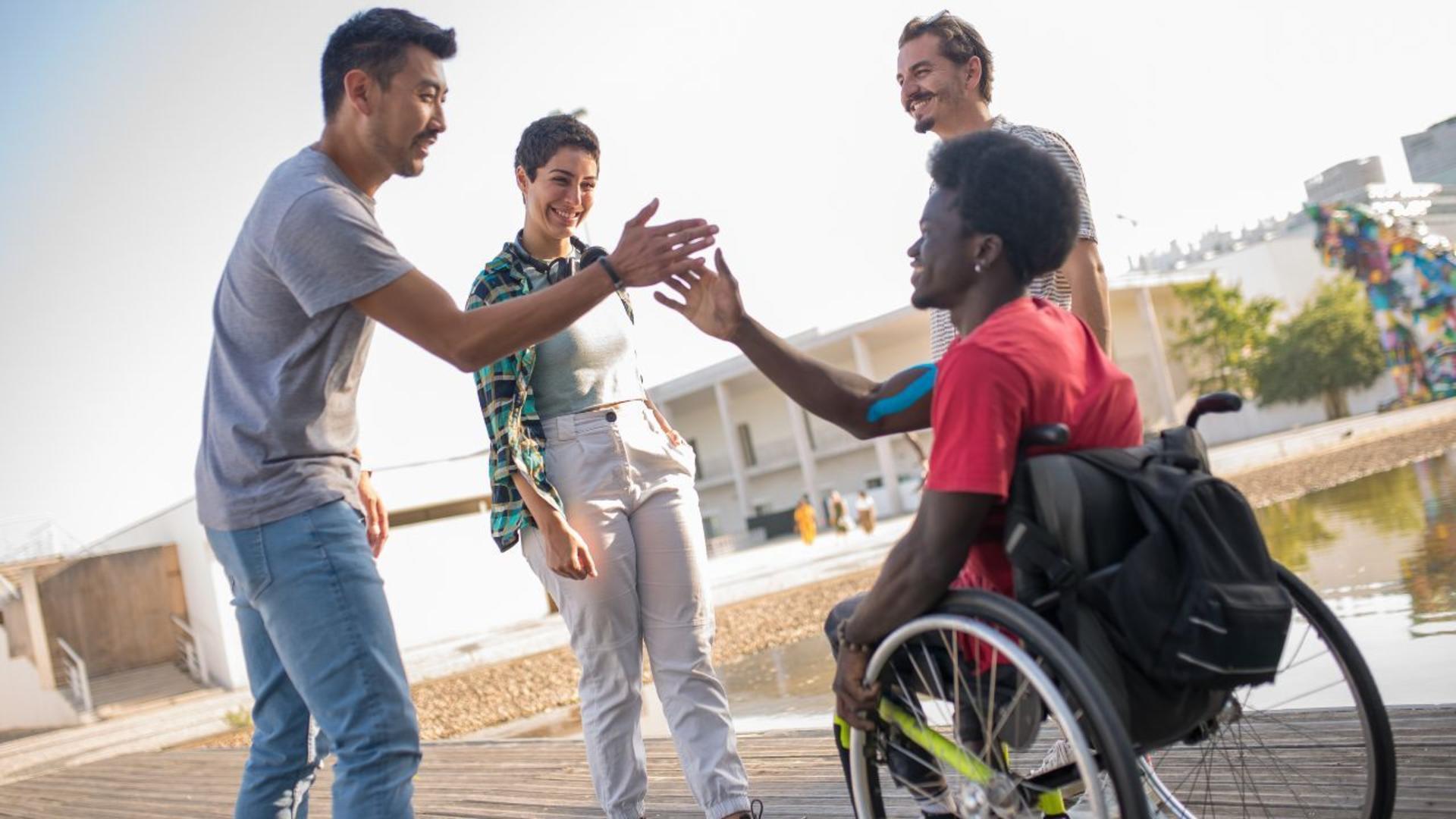Navigating the transition from school to Adulthood for young adults with disabilities
Published at 29-07-2024 13:00:00

Navigating the transition from school to Adulthood for young adults with disabilities
The transition from school to adulthood is a significant milestone for any young person, but for young adults with disabilities, this period can present unique challenges and opportunities. As a parent, guiding your child through this transition requires careful planning, understanding and support. In this article today we'll delve into understanding this transition and provide you with some practical tips to help your child navigate this critical stage and prepare for a fulfilling adult life!
Understanding the transition
The transition from school into adulthood usually involves areas like:
Education and training: Deciding whether to pursue further education, vocational training, or other learning opportunities.
Employment: Exploring job options, supported employment, or volunteer opportunities that align with your child's interests and abilities.
Independent living: Developing the skills necessary for independent living, such as managing finances, household tasks, and personal care.
Social engagement: Encouraging participation in social and recreational activities to build a strong network and foster a sense of community.
Planning for the future
- Start early:
- Begin planning for the transition while your child is still in school. This allows ample time to explore options, set goals, and make informed decisions.
- Collaborate with your child’s school, NDIS planner, and other support services to create a transition plan tailored to your child’s needs and aspirations.
- Explore education and vocational training options:
- Research post-school education and vocational training programs that cater to your child’s interests and abilities. Many institutions offer specialized courses or support services for students with disabilities.
- Consider options such as TAFE courses, apprenticeships, or supported vocational training programs that provide hands-on experience in a specific field.
- Prepare for employment:
- Identify potential career paths that align with your child’s strengths and interests. Consider supported employment options or programs like Disability Employment Services that can assist with job placement and on-the-job support.
- Encourage your child to gain work experience through internships, volunteering, or part-time jobs. This can help build confidence, develop skills, and provide valuable experience.
- Develop independent living skills:
- Help your child develop essential life skills needed for independent living. This may include budgeting, cooking, cleaning, and managing personal care.
- Foster social engagement:
- Encourage your child to participate in social and recreational activities that interest them. Joining clubs, sports teams, or community groups can help them build friendships and a support network.
- Look for programs or organizations that offer social skills training or peer mentoring, which can help your child navigate social situations more confidently.
- Use NDIS supports:
- The NDIS provides various supports that can help your child during the transition to adulthood. These may include funding for further education, employment supports, life skills development, and assistive technology.
- Work with your NDIS planner to ensure your child’s plan includes the necessary supports to achieve their goals and aspirations.
Tips for parents
- Empower your child: Involve your child in the decision-making process as much as possible. Encourage them to express their goals, interests, and concerns. This helps build their confidence and ensures that the transition plan reflects their aspirations.
- Be patient and flexible: The transition to adulthood can be a gradual process, and it’s important to be patient and flexible. Some goals may take longer to achieve, and plans may need to be adjusted along the way.
- Seek support and resources: Don’t hesitate to seek support from professionals, support groups, or other parents who have gone through similar transitions. Sharing experiences and advice can provide valuable insights and reassurance.
- Celebrate milestones: Celebrate your child’s achievements, no matter how small. Recognizing their progress can boost their confidence and motivate them to keep moving forward.
The transition from school to adulthood is a significant journey for young adults with disabilities, but with the right planning and support, it can be a positive and empowering experience. If you need additional support or guidance during this transition, reach out to your NDIS planner, local support services, or other parents who have been through similar experiences. With the right resources and a strong support network, you and your child can successfully navigate the transition to adulthood and build a bright future!